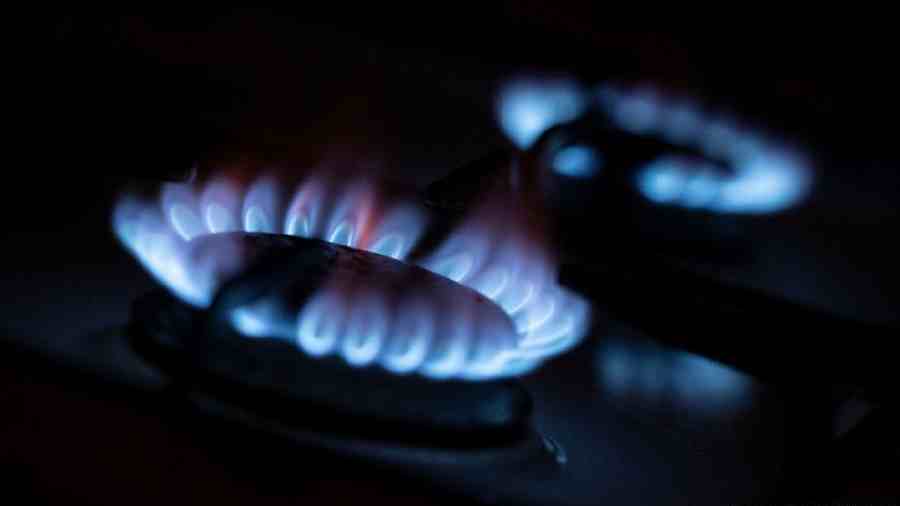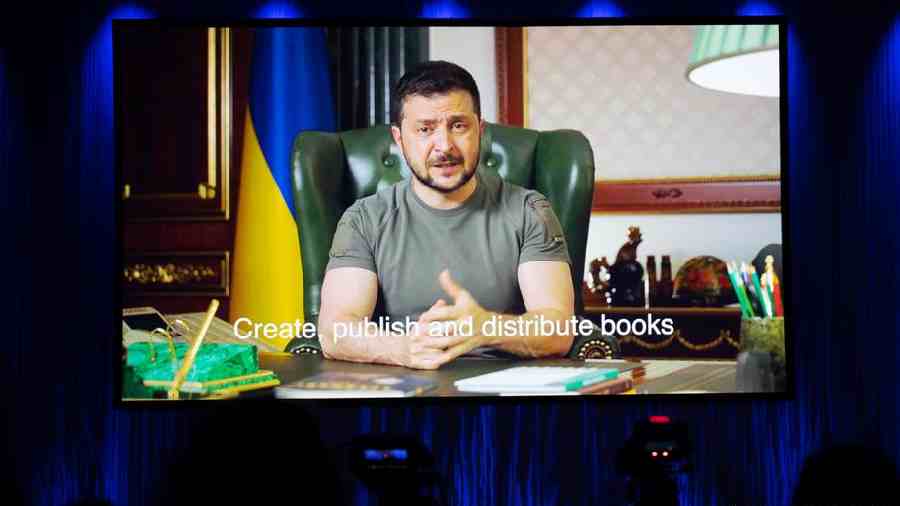European leaders on Friday reached an agreement on what they called a "roadmap" aimed at putting in place measures to shield consumers from rising energy prices.
Several members, including Germany, had objected to immediate moves to cap prices recommended by France and others.
"We had a very good discussion this morning again, after yesterday having agreed on this huge energy package," European Commission President Ursula von der Leyen said. "There is a lot of work now ahead of us where the energy is concerned. But the roadmap is very clear. And it was good to have this unanimity, this broad support for the roadmap we have put forward."
German Chancellor Olaf Scholz said that the bloc stood united against Russian President Vladimir Putin and high energy prices.
He said that under the roadmap agreed upon, EU energy ministers would have a precise framework for their future talks on how to reduce energy prices.
For the time being, the European Commission has proposed that countries pool their gas purchases, and also offered a compromise that would allow for a price correction mechanism to kick in in exceptional circumstances.
Latvia calls compromise 'step in the right direction'
Latvian Prime Minister Krisjanis Karins told DW on Friday that the compromise was "a step in the right direction."
Karins said that ultimately, the goal should be concerted European action to deal with high prices, rather than government spending on the national level to mitigate their impact.
"Because right now what we are doing, each member state individually is in one way or another subsidizing households and businesses. So we get through the winter. We are dealing with the effects of high prices but we're not dealing with the high prices," Karins said. "The only way to deal with the high prices in the short term is through EU action, collective purchases, viable price caps. This would help all EU member states."
Germany, for instance, approved just such a domestic measure in the Bundestag on Friday, signing off on a roughly €200 billion package designed to cap or limit gas prices domestically.
Further financial aid for Ukraine
Von der Leyen also said in Brussels that the EU was drawing up plans to provide Ukraine with €1.5 billion per month in aid starting next year.
She said that the government in Kyiv had requested that international donors provide a "stable, reliable and predictable flow" of macroeconomic support.
"Ukraine needs our support for as long as it takes, starting with the needs of next year," von der Leyen said. "We discussed how to meet Ukraine's increasing needs, and tasked finance ministers to develop the appropriate mechanism."
Von der Leyen also noted that next week she and German Chancellor Scholz would co-host a conference on Ukrainian recovery, looking at "how to approach the reconstruction process with our global partners."
Scholz, meanwhile, said that targeted attacks on civilian populations in Ukraine amounted to war crimes.
New China approach: less 'naive,' but no 'systematic confrontation'
Friday's talks also focused on China and future ties with Beijing, with von der Leyen saying that Russia's invasion of Ukraine had led Europe to reassess its reliance on more autocratic countries.
"Obviously, we have to be very vigilant when it comes to dependencies. And we've learned our lesson," von der Leyen said.
European Council President Charles Michel said the three hours of talks had discussed how to avoid outright confrontation with Beijing while recognizing the threat it poses.
"This discussion showed a very clear will to avoid being naive, but neither did we want to embark into a logic of systematic confrontation," Michel said. "We believe that we must be committed to bringing more reciprocity and rebalancing in particular in the economic relations with China and the EU."
The talks come soon after President Xi Jinping further solidified his hold on power in Beijing at the Chinese Communist Party Conference.
Von der Leyen mentioned ramping up European production of semiconductors, in particular, as a matter of "urgency." The core components in electronics equipment are overwhelmingly made in Asia, with the leading four manufacturers being Taiwan, South Korea, Japan and China.
Semiconductor shortages have affected everything from car production worldwide to the excruciatingly slow roll-out of the PlayStation 5 games console in recent years, with demand expected to continue to outstrip supply for some time still.











